News Headlines
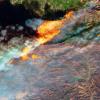 New CU Boulder-led research shows that three major “switches” affecting wildfire—fuel, aridity and ignition—were either flipped on and/or kept on longer than expected last year, triggering one of the largest and costliest U.S. wildfire seasons in recent decades.
New CU Boulder-led research shows that three major “switches” affecting wildfire—fuel, aridity and ignition—were either flipped on and/or kept on longer than expected last year, triggering one of the largest and costliest U.S. wildfire seasons in recent decades.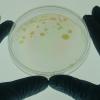 A new study by CU Boulder researchers suggests that one particular beneficial bacteria can have long-lasting anti-inflammatory effects on the brain, making it more resilient to the physical and behavioral effects of stress.
A new study by CU Boulder researchers suggests that one particular beneficial bacteria can have long-lasting anti-inflammatory effects on the brain, making it more resilient to the physical and behavioral effects of stress.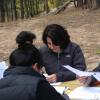 A new assessment by Virginia Institute of Marine Science, National Weather Service, CIRES/NOAA, and other researchers across the country identifies early-career barriers—and solutions—to improve climate research.
A new assessment by Virginia Institute of Marine Science, National Weather Service, CIRES/NOAA, and other researchers across the country identifies early-career barriers—and solutions—to improve climate research. In recent years, Voeltz's research has fundamentally altered the way scientists understand the machinery of life’s most basic unit, redrawing the cellular map and igniting a new field that could lead to new therapies for neurogenerative diseases.
In recent years, Voeltz's research has fundamentally altered the way scientists understand the machinery of life’s most basic unit, redrawing the cellular map and igniting a new field that could lead to new therapies for neurogenerative diseases.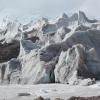 Glacial retreat in cold, high-altitude ecosystems exposes environments that are extremely sensitive to phosphorus input, new CU Boulder-led research shows.
Glacial retreat in cold, high-altitude ecosystems exposes environments that are extremely sensitive to phosphorus input, new CU Boulder-led research shows. The Colorado Office of Economic Development and International Trade (OEDIT) and the Colorado Space Business Roundtable convened a forum at CU Boulder on May 17, 2018 to explore current investment challenges facing Colorado’s aerospace industry.
The Colorado Office of Economic Development and International Trade (OEDIT) and the Colorado Space Business Roundtable convened a forum at CU Boulder on May 17, 2018 to explore current investment challenges facing Colorado’s aerospace industry.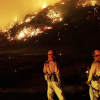 CIRES’ Western Water Assessment has released a new usable science guide for researchers hoping for impact. The handbook provides tested, tangible methods for researchers to produce useful science for those who write legislation, implement policy, manage natural resources or public resources, or manage their own business—bridging the gap between critical scientific research and constructive societal impact.
CIRES’ Western Water Assessment has released a new usable science guide for researchers hoping for impact. The handbook provides tested, tangible methods for researchers to produce useful science for those who write legislation, implement policy, manage natural resources or public resources, or manage their own business—bridging the gap between critical scientific research and constructive societal impact.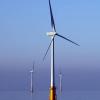 A new NOAA dataset of wind forecasts could help the energy industry identify which offshore areas in the United States have the best potential for wind resource development.
A new NOAA dataset of wind forecasts could help the energy industry identify which offshore areas in the United States have the best potential for wind resource development.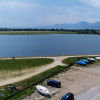 The project, which is sponsored by Boulder County Public Health and led by researchers from CU Boulder’s Institute of Arctic and Alpine Research (INSTAAR) in partnership with the Colorado Department of Public Health and the Environment (CDPHE), installed the first automated system of its kind in the Rocky Mountain region that provides valuable real-time information through hourly postings on a public website for residents and policymakers alike.
The project, which is sponsored by Boulder County Public Health and led by researchers from CU Boulder’s Institute of Arctic and Alpine Research (INSTAAR) in partnership with the Colorado Department of Public Health and the Environment (CDPHE), installed the first automated system of its kind in the Rocky Mountain region that provides valuable real-time information through hourly postings on a public website for residents and policymakers alike.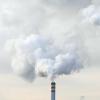 Cheap natural gas prices and the increasing availability of wind energy are pummeling the coal industry more than regulation, according to a new economic analysis from CU Boulder and North Carolina State University.
Cheap natural gas prices and the increasing availability of wind energy are pummeling the coal industry more than regulation, according to a new economic analysis from CU Boulder and North Carolina State University.

